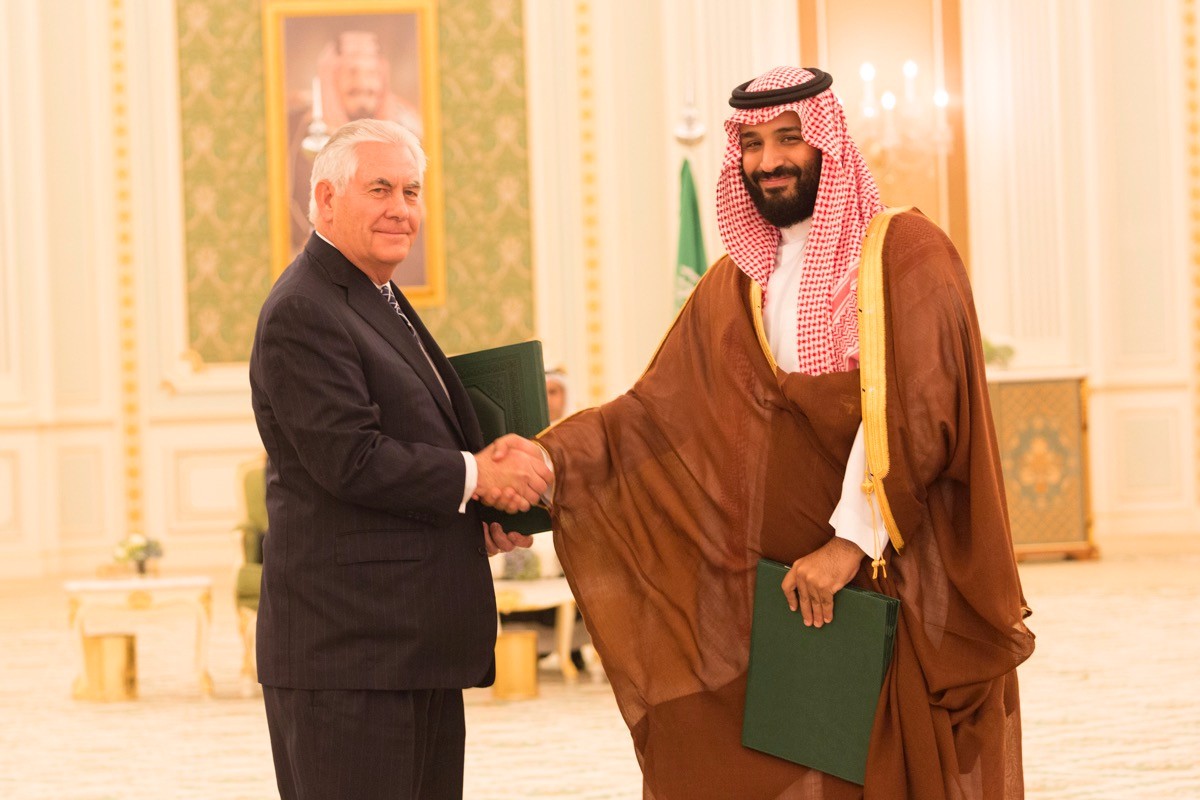 Photo Courtesy: Ninian Reid on Flickr
Photo Courtesy: Ninian Reid on Flickr
Saudi Arabia’s New Crown Prince and His Vision for Oil
Prince Mohammed bin Salman is the newly appointed Crown Prince of Saudi Arabia. His critics consider him too young, impetuous, and lacking the proper qualifications. Others say his youth and relative liberalism will drive his largely traditionalist country into the 21st century. Either way, the Crown Prince is inheriting a nation consumed by economic turmoil and in desperate need of reform.
The Saudi Arabian economy has been almost completely reliant on its energy resources for decades, with the oil and gas sector accounting for fifty percent of gross domestic product and about eighty-five percent of export earnings. Saudi Arabia and other major oil producing countries are facing significant losses as oil prices have dropped to their lowest point since August 2016, increasing tensions in an already unstable region. In the past, Saudi Arabian rulers had little concern with their nation’s economic dependence on oil. Amid the present international surge towards renewables, and the bleak future of oil as a secure source of Saudi income, Prince bin Salman’s Vision 2030 sets a path towards economic diversification.
The idea of an initial public offering (IPO) of Saudi Aramco, the national oil company, was rumored before the announcement of the Crown Prince. Prince bin Salman’s appointment is accelerating the sale as a cornerstone in his Vision 2030 plan. The IPO release is now tentatively scheduled for the second half of 2018. The current valuation of the company proposed by Prince Mohammed bin Salman is $2 trillion, making its five percent sliver four times greater than the biggest IPO to date. While an appealing deal for investors, Saudi Arabian traditionalists still have serious qualms with giving away a fundamental piece of their economic identity.
The benefits of privatizing the nation’s greatest economic generator, previously run in the manner of a government entity, extends far beyond profit margins and needs to be pursued. Listing Saudi Aramco’s IPO on the New York Stock Exchange requires that the company meet the rigorous standards of the SEC and undergo in-depth financial restructuring. This overhaul is essential in executing the company’s movement away from political entanglement and towards the efficiency of privatization and corporate structure. Investors and citizens alike need to be privy to a certain level of transparency in Saudi Aramco.
The national company operates in a kingdom that has been ranked among some of the world’s most opaque oil-producing nations. With the introduction of the IPO, Saudi Aramco would be forced to disclose some of its most closely-held data. This includes information about Saudi Arabia’s oil reserves that government officials previously considered to be national security secrets: information such as disclosure on earnings, operational costs, reserves, oil sales, taxes paid to the state, and expenditure on activities unrelated to energy sector development. Saudi Aramco is a “compete black box”, leaving speculation on what will be revealed before the release of the company’s IPO.
It is crucial that the Saudi Arabian economy find the stability that can only exist outside of its current dependence on a depressed oil market; while managing a fifty percent explosion in population since 2000, an extremely high unemployment rate for youth, and growing costs over the war in Yemen. The hope of the nation lies with an unlikely Crown Prince and the faith that he move his largely traditionalist country to a modernized economy in order to achieve stabilization.
Saudi Arabia needs a Crown Prince who can overcome his past missteps and surpass the expectations of his cynics. His Vision 2030 plan has the potential to diversify the economy in Saudi Arabia and to provide clarity to its largest government-run corporation. Prince bin Salman’s listing of Saudi Aramco’s IPO will help his kingdom to survive the international movement to renewable energy.






